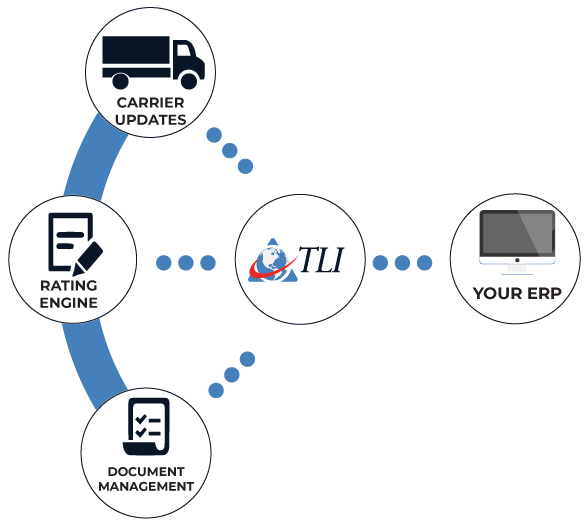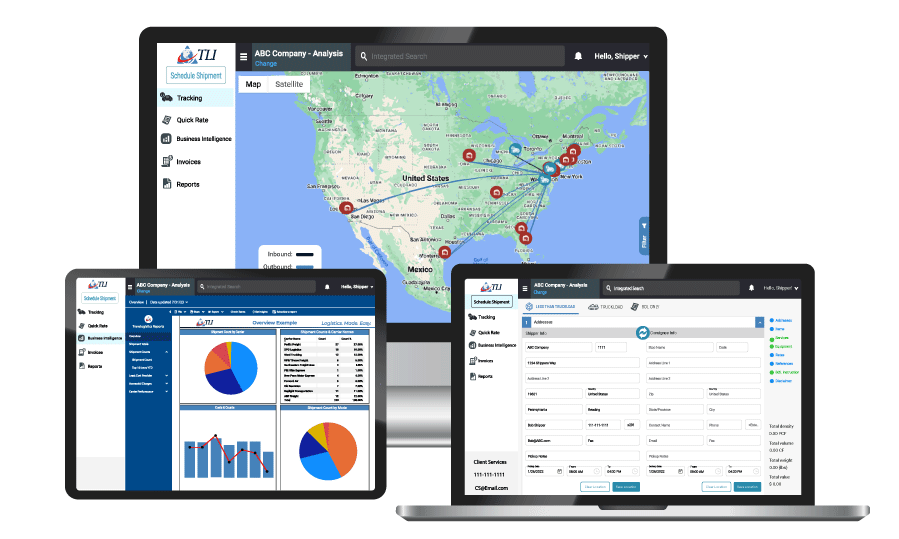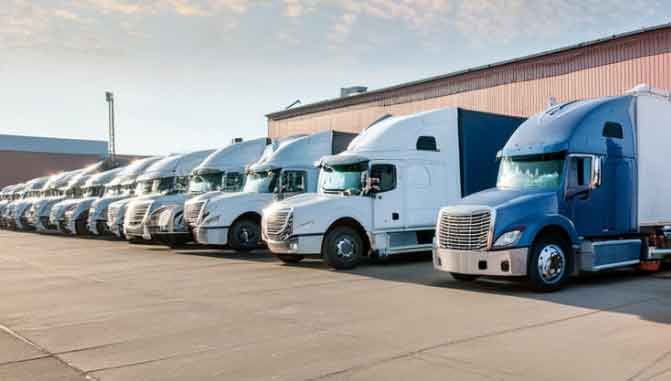Managed Transportation
What is managed transportation?
What are the benefits of Managed Transportation services?
Managed transportation services offer shippers major operational advantages. By outsourcing
freight invoice auditing, shippers avoid overpaying for transportation and recover money lost to invalid charges.
Cargo claims are handled by experts, ensuring proper compensation for damages without the hassle of managing the claims process internally. Transportation RFP management helps shippers secure the best carriers at competitive rates tailored to their service needs. Strict carrier vetting adds another layer of protection, ensuring all carriers meet high standards for safety, insurance, and performance. Through centralized tendering, shipments are automatically matched with the ideal carriers based on the shipper’s unique business rules. With multimodal capabilities, the provider can easily manage
parcel,
LTL, and
FTL shipments — all from a single TMS platform.
Managed transportation services also drive critical efficiencies across the supply chain.
Digitizing and archiving supply chain documents like bills of lading allows for instant access when auditing, filing claims, or answering customer inquiries. Integration between the provider’s transportation management system (TMS) and the shipper’s ERP system automates data sharing, improving visibility from order creation to final delivery. Professional supply chain analytics uncover new opportunities for optimization across shipping modes, carriers, and lanes.
Ultimately,
managed transportation services free shippers to focus on what they do best — while logistics experts manage transportation operations efficiently, safely, and at the lowest possible cost.
What is a transportation management system?
A transportation management system (TMS) is a powerful logistics software platform that efficiently plans, executes, and optimizes the movement of freight. TLI provides shippers with a robust, cloud-based TMS as the backbone of their managed transportation services.
This transportation management system automates planning and execution across all
transportation modes from a centralized platform. It enables shippers to auto-tender shipments to approved carriers based on predefined business rules like rates, transit times, and service levels. The TMS facilitates electronic communication and data exchange with carriers including sending tenders, receiving tracking status updates, and managing cargo claims or shipment accessorials. It captures and stores shipment data providing full visibility and an auditable trail.
The
TLI TMS enhances productivity by automating manual tasks like routing, carrier selection, and freight audit and payment. Value-added services like load optimization consolidate orders to improve asset utilization. Powerful analytics identify opportunities for negotiating better carrier pricing or modes/lanes ripe for optimization.
Integration with shipper ERP/WMS systems allows the seamless flow of data across systems eliminating redundant entries. Overall, TLI's TMS is a mission-critical platform that drives efficiencies, cost savings, and enhanced control over transportation operations when bundled with their managed services expertise.
Plug & Play with TLI today!
Translogistics offers comprehensive managed transportation services that optimize shippers' logistics operations from start to finish. TLI's team of experts audits freight invoices to prevent overpayments, files and resolves cargo claims, and runs strategic transportation RFPs to secure the right carriers at competitive rates. They vet carriers against stringent criteria and utilize an advanced transportation management system to tender shipments based on predefined business rules across parcel, LTL, and FTL modes. This cloud-based TMS automates planning, execution, and data capture while providing full visibility. It facilitates electronic communication with carriers and integrates seamlessly with shippers' ERP systems. Moreover, Translogistics' TMS leverages powerful analytics to identify optimization opportunities and drive efficiencies. By outsourcing transportation management to Translogistics, shippers gain supply chain reliability, cost savings, and the ability to focus on core competencies.
Take Control of Your Transportation — Without the Hassle
Outsource the complexity. Maximize your savings. Let our experts support your logistics while you focus on growing your business and managing the supply chain through delegation.






